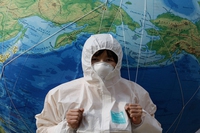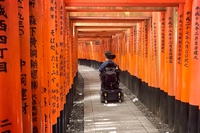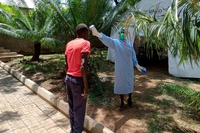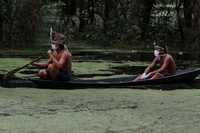
Hokkaido, Japan’s wilderness, is a window onto diverse communities
Niseko, Toya-Usu and Shiraoi are three Hokkaido destinations for travellers who want to feel close to the communities they’re visiting.
Urban development has jeopardised that primordial bond that used to connect people and the environment. How can it be restored? With the right lifestyle: a conscientious and responsible one. Our every daily action has a direct impact on our well-being and on everything that surrounds us. Here you can find information, news, tips and ideas about arts & culture, food and health, as well as design & fashion and travel to make your home, your community and your city greener by adopting a more balanced lifestyle. Recycling and reusing objects meant for landfill, smart mobility, using only natural resources that optimise domestic performance or systems that reduce energy waste: these are just some of the solutions for those who want to reduce their environmental impact by respecting others and, above all, the planet.
Related trends: Design & Fashion, Travel.
Niseko, Toya-Usu and Shiraoi are three Hokkaido destinations for travellers who want to feel close to the communities they’re visiting.
We talked to World Happiness Summit organiser Karen Guggenheim about the connection between the planet’s health and our happiness.
The new generation of high-performance wood materials offers unexpected hi-tech possibilities to the worlds of design and architecture.
A group of experts in Tokyo suggested pouring radioactive water from Fukushima into the open sea. A marine biochemist explains the consequences of this absurd decision.
By recovering clothes discarded in the West, Togolese designer Amah Ayiv gives them new life through his high fashion creations.
All catwalks in July will be broadcast online: after Paris, it’s Milan Digital Fashion Week’s turn. And the biggest beneficiary is the environment.
Disabled travellers need not fear Japan. Accessible Japan founder Josh Grisdale tells us about his commitment to opening the country’s doors to everyone.
Kalongo Hospital in Uganda is on high alert. Medics are facing the pandemic amid an already precarious healthcare situation, in a country with only 55 intensive care beds.
Indigenous peoples in the isolated region are suffering from poor access to health, with several cities becoming hotspots of coronavirus in the Amazon. Indigenous leaders, health experts and NGOs are calling for international help.
The book Fashion Industry 2030 aims to contribute to reshaping the future through sustainability and responsible innovation. An exclusive opportunity to read its introduction.








